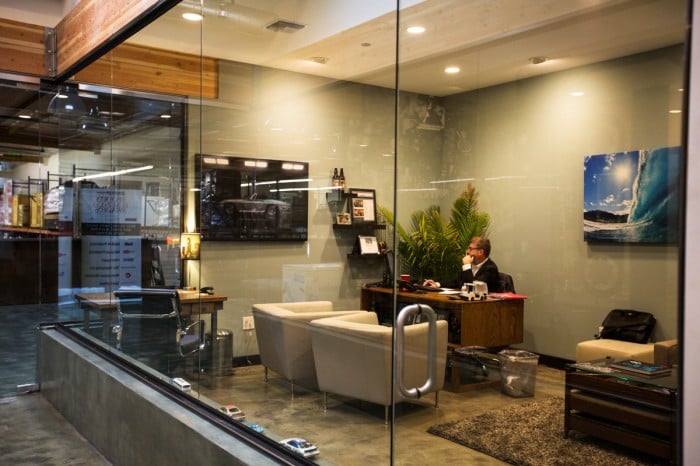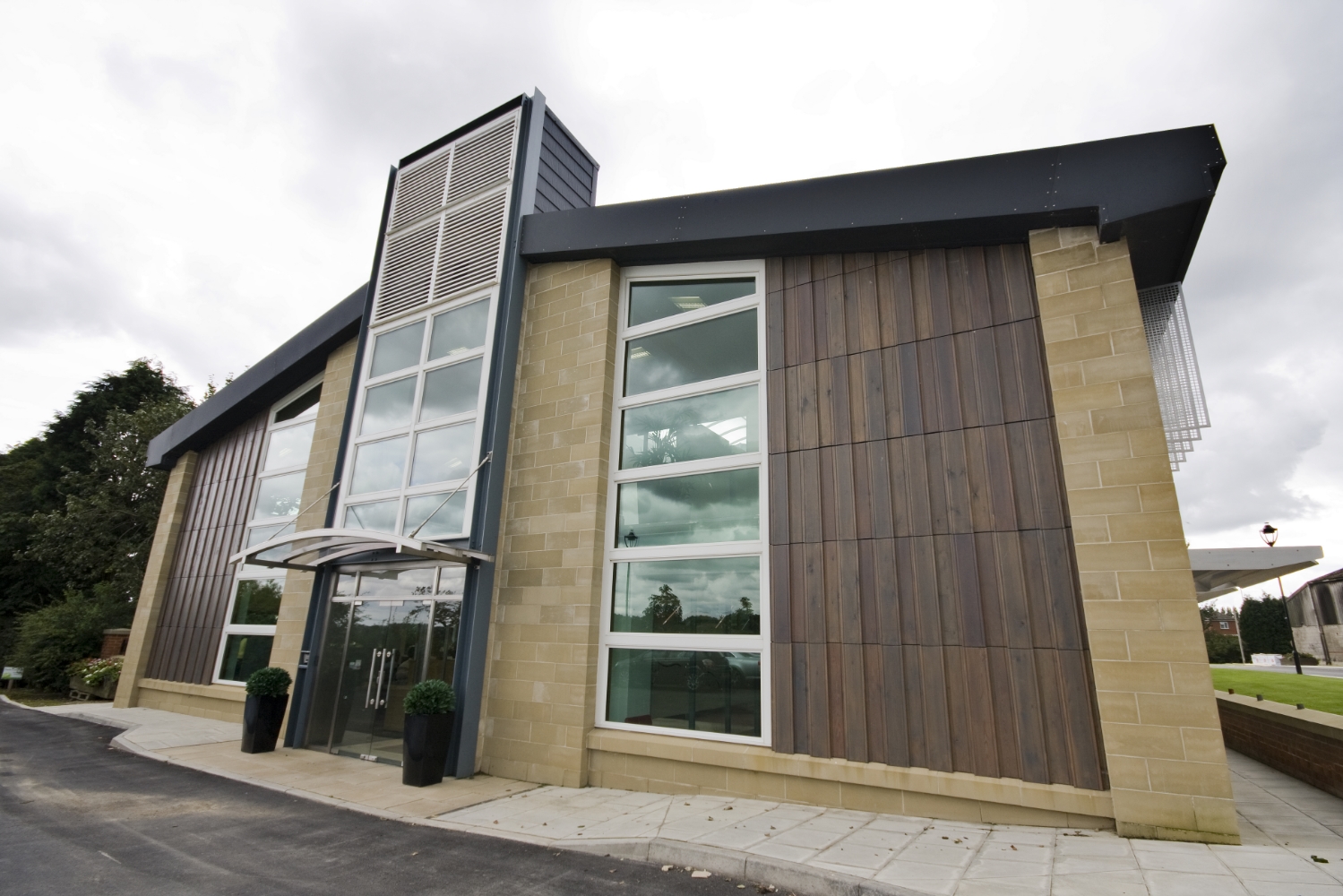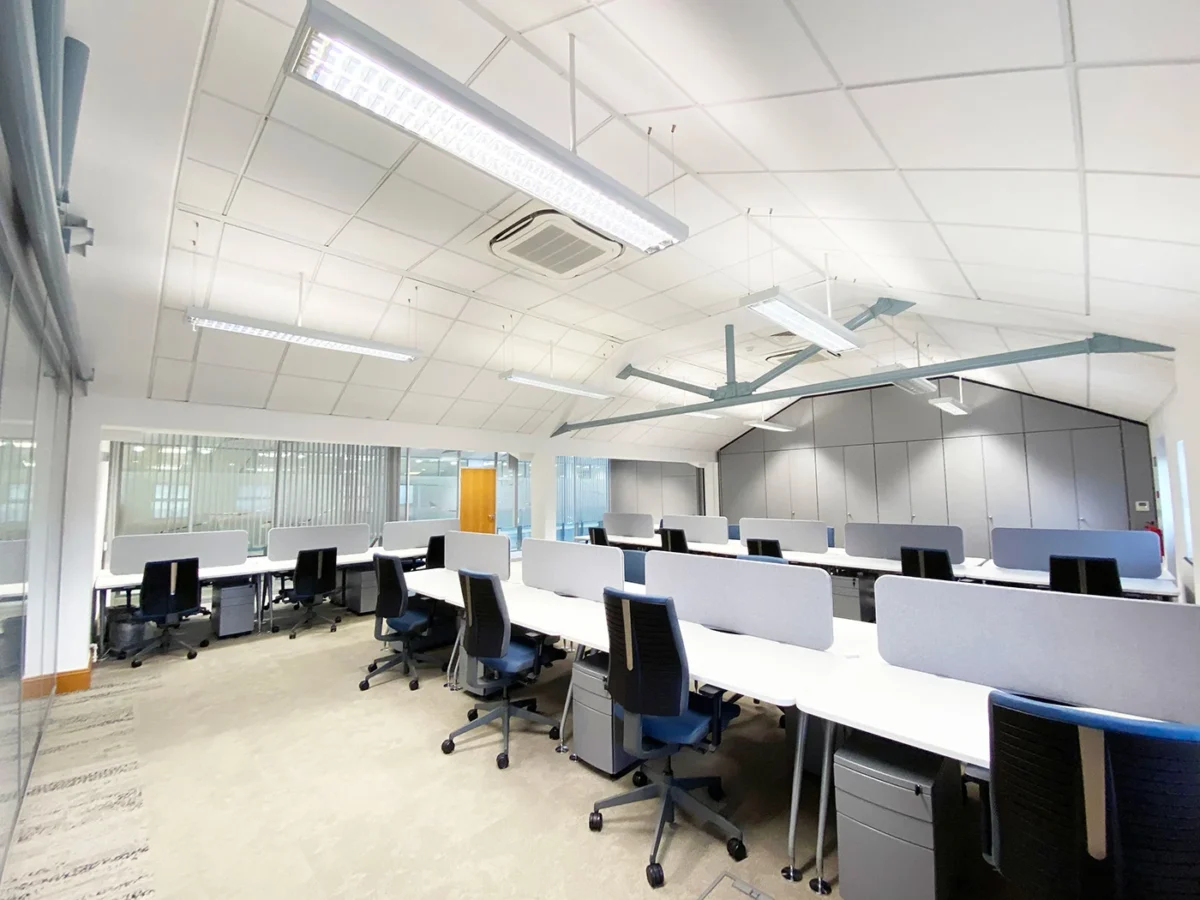“Sign here on the dotted line, please, Sir?” To which the company director fervently signs, ecstatic that he has finally got proper business premises and his company really is going places!
Business might be booming at the moment, and with profit signs clocking up, you might feel compelled to lease out a bricks and mortar office to develop your business further.
But how do you know your business will maintain such growth and be able to continue paying hefty office lease costs in 12, 18 or 24 months?
In short, would you be better off renting a serviced office rather than taking the plunge and committing to leased office space for the foreseeable future?
Commitment to continue paying for the property
According to the former Dragons’ Den star Theo Paphitis, “50% of all small businesses fail in the first couple of years.”
It is a startling statistic and one of the key reasons people take serviced office space.
When deliberating whether you should opt for leased or serviced office space, you should ask yourself this question: “Where will your business be in five years?”
If you can’t answer this question but take out a leased space anyway, you are, by all intents and purposes, merely guessing. And guesswork rarely works well in business. You are likely to be simply making do with what you need now and putting up with it in the future, or you are taking out more space than you need now in the hope that your business will grow in the future. If your business does develop, fantastic. However, as we can see from Theo Paphitis’ startling statistic, there is a real chance/concern that it won’t grow, and the office lease will be a waste of money. Even if your business does grow, there is the chance that a leased office would be wasted capacity while you grow.
Think long and hard about where your company will be in five years before you sign up for a lengthy lease contract.
A serviced office solution
With serviced office space, the commitment is much shorter, meaning you would only need to finish a 12-month contract. Consequently, if you found yourself in the unfortunate position that your business was no longer viable, you could walk away from the office once the 12-month contract terminated. More often than not, if you went to the provider, this duration could be shortened, as, without wanting an empty space in the office, the serviced office provider would help find a solution.
And then there’s the staff.
An office doesn’t look too professional if there is no receptionist in the foyer to meet and greet clients, potential clients, employees and other visitors.
If you lease an office, you will, in general, be required to budget for a receptionist and other key members of staff required to ensure a professional office environment is maintained.
As most 4 – 8 person teams don’t require a full-time receptionist, what’s the point in paying a ‘9 – 5’ when in a serviced office you get a ‘share’ of the team?
IT staff, for example, are essential members of the office community. Imagine the embarrassment of having an unexpected and sudden IT failure in the middle of a vital client presentation and being void of the skills and knowledge of how to rectify the problem?
Yes, it’s safe to say IT staff are vital for the smooth running of an office and don’t come without a price tag.
Whilst with leased offices you will need to hire crucial employees such as reception staff and IT professionals, with many serviced offices, they are included in the package.
For example, here at WorkWell, our serviced offices include onsite IT support, meaning you don’t have to dedicate valuable time, money and resources sourcing your IT staff.
Other office essentials
When you lease an office, you typically get the office shell and little more besides. Furniture, Wi-Fi connections, telephones and other features such as temperature control will all have to be installed to your requirements.
What’s more, it is not uncommon to be in a leased office in which the AC or another essential office feature is broken because “Nobody knows how to fix it.”
In a serviced office, it is the provider’s job to repair any breakages and keep all features well-maintained and in good working order.
With a serviced office, such office essentials are already there waiting for you, which can save you considerable amounts of time. From a 10 to 100-person office, all aspects need to be considered, meaning setting up an office is a huge project. By contrast, with a serviced office you simply show up with your own devices, your team and perhaps and sandwich or two and instead of waiting for weeks on end for the communications to be connected, office furniture to arrive, not to mention coffee machines and fridges to be installed, you will be able to start working and earning money the day you move in.
Consider maintenance costs
Offices do, of course, need to be kept clean. Their grounds need to be maintained, as does the outside of the office, after all, how professional or inspiring would a company look like if its premises comprised of peeling paint, a weed-infested garden and litter bins bursting at the seams?
In short, maintaining a clean, welcoming and inviting office again takes time, money and resources, and are you sure your business has access to such funds?
And then there’s the unexpected costs. A good way to exemplify this point is the fact that last year, Carrwood Park’s server room AC broke and cost £15,000 to repair. Whether it’s faulty ACs or a leaky roof, you have to ask yourself, how many SMEs have access to £15,000 at the drop of a hat?
So what about the price?
Of course, the cost of leased offices varies considerably, as does serviced offices. The main influencing factor which contributes to the cost of any office space is the location. For example, an office in London will be significantly pricier to rent than an office in Hull or Leeds.
You might find that a serviced office costs more per square foot than a leased office. However, you take much less of it and share communal space and resources. Combine this with the fact that you will have access to enterprise-scale infrastructure and have potential issues such as breakages and repairs dealt with, you will find that you may have less space, but the space you do have enables you to work more efficiently and focus on what earns you money.
Once you factor these points in, then serviced offices are so much better value. In addition, because you share a lot of the resources, the actual price is much cheaper than what it would cost for the same services and resources when leasing an office.
For quality, stylish, practical and convenient serviced offices on the outskirts of Leeds, get in touch with WorkWell.















